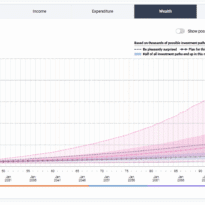US President Donald Trump has said he is considering imposing a 10% tariff on Chinese imports from 1 February, but the ‘Trump is bad for China’ narrative is unlikely to drive equity returns in the long run, says Nicholas Yeo, head of China equities at abrdn.
Contrary to what some investors think, history suggests that the ‘Trump is bad for China’ narrative isn’t necessarily enough to drive equity returns in the long run. We see domestic issues as the most important driver of Chinese stock prices.
Following the initial impact of the first trade war in 2018, Chinese markets rallied from the end of 2018 to mid-2021. Then in 2021, it was actually domestic issues that impacted the market, including radical Covid policies, a regulatory crackdown, and property deleveraging. The direct impact of tariffs was relatively short-lived. What’s more, following the first Trump presidency, Chinese companies have developed various alternative trade routes and fostered new destinations for their goods. We believe these actions would further soften the impact of the planned tariffs.
From a valuation perspective, we are still seeing a disconnect between low valuations and yet strong earnings delivery for quality companies in China. With the margin of error in China still attractive, valuations palatable, and the country’s unloved status with investors, we believe there is scope for a long and sustained re-rating of these companies, especially given how negative sentiment has become.
Policy execution remains at the top of investors’ minds, so we need to see meaningful measures that have a tangible impact on the economy. On that front, we continue to monitor developments closely and remain cautiously optimistic about China’s outlook.
In the longer term, we expect innovation to underpin growth in crucial sectors represented by our five portfolio themes: aspiration, digitalisation, green, health, and wealth. The types of jobs in these sectors will become more sophisticated over the coming years, likely supporting the long-term growth of the Chinese middle class. As we have seen in 2024, there will be challenging periods for China on the road to achieving high-income status.
Over our thirty years of investing in China, we have found that the best way to navigate market ups and downs is to buy and hold companies that have strong long-term growth stories. These are the companies that can emerge from downturns in stronger positions.
Main image:































